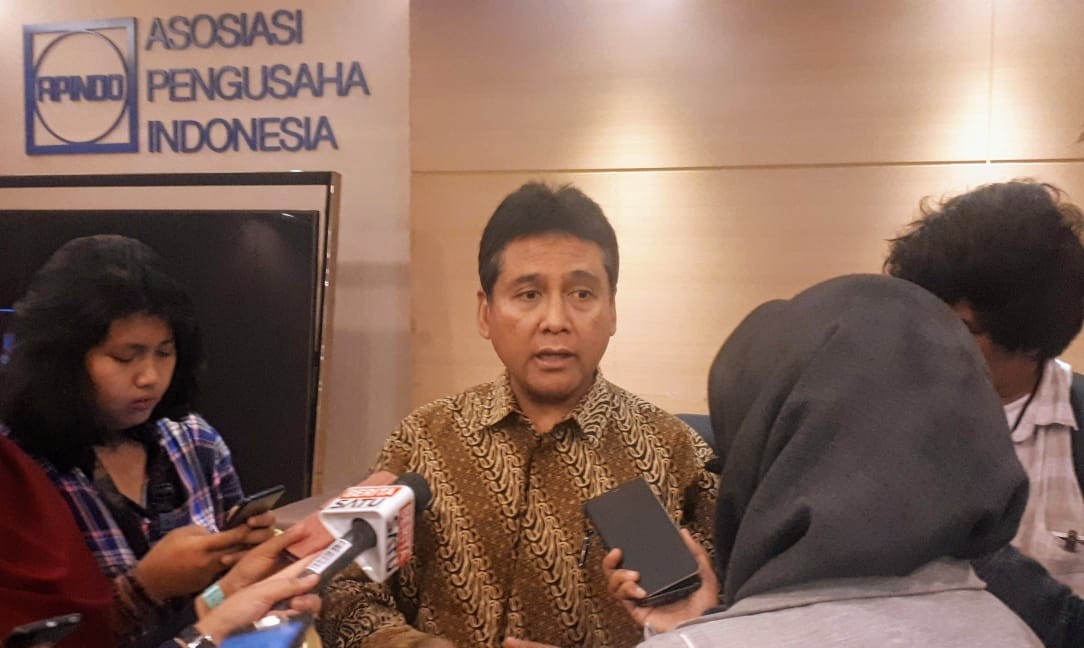Popular Reads
Top Results
Can't find what you're looking for?
View all search resultsPopular Reads
Top Results
Can't find what you're looking for?
View all search resultsBetter coordination, speed needed for stimulus
Apindo deputy chairwoman Shinta Kamdani said members of the association faced roadblocks when trying to access the government’s stimulus, highlighting government institutions’ weak coordination.
Change text size
Gift Premium Articles
to Anyone
B
usinesspeople have called on the government and regional administrations to improve their coordination and to swiftly disburse allocated stimulus packages to kick-start the sluggish economy.
“Businesses expect social aid and stimulus spending to be accelerated to improve the people’s purchasing power,” Indonesian Employers Association (Apindo) chairman Hariyadi Sukamdani said in a statement on Thursday after the association held its two-day national working and consultation meeting.
The association also asked the Financial Services Authority (OJK) to extend its loan restructuring relaxation policy for the next one to two years to help companies maintain their cash flow amid the pandemic.
The coronavirus outbreak has severely hit the Indonesian economy as its gross domestic product (GDP) shrank 5.32 percent annually in the second quarter, the worst since 1999, due to falling household spending and investment.
The government has allocated Rp 695.2 trillion (US$47.38 billion) from the state budget to fund its COVID-19 response, which includes efforts to strengthen the healthcare system, social aid and an economic recovery program, among other things.
However, the stimulus disbursement has been lagging. The government had spent only 21.7 percent of the budget as of Aug. 6, at a time when accelerated spending was needed most. Finance Minister Sri Mulyani Indrawati said in late June that several administrative issues had hampered the government’s efforts to disburse the COVID-19 funds swiftly.
Apindo deputy chairwoman Shinta Kamdani said members of the association faced roadblocks when trying to access the government’s stimulus, highlighting government institutions’ weak coordination.
“Right now, there seems to be a lot of problems within state agencies. Our members found that synergy between state agencies has yet to run well,” Shinta said during Apindo’s livestreamed meeting on Wednesday, bringing to light its members’ concerns.
Experts have said the slow budget realization is hindering the country’s economic recovery, with recent data from Statistics Indonesia (BPS) showing a lack of economic boost from the government as government expenditure dropped 6.9 percent year-on-year (yoy) during this year’s second quarter.
Coordinating Economic Minister Airlangga Hartarto conceded in a keynote speech during the meeting that fund disbursement was far below the expected target. He noted, for instance, that of Rp 120.61 trillion in fiscal incentives under the national economic recovery program, only 13.7 percent, or Rp 16.6 trillion, had been disbursed as of Aug. 3.
“The President is pushing for spending in each state agency to be accelerated. When spending has been accelerated, we hope that [economic growth] can move to a positive trajectory,” he said.
Airlangga, a businessman himself, reported that as of June, the government had spent Rp 1 quadrillion of its state budget out of the allocated Rp 2.7 quadrillion, which included spending for the economic recovery program. He explained that Rp 700 trillion would be disbursed in the third quarter, while the remaining Rp 1 quadrillion in the fourth quarter, in an effort to boost the economy.
The government expects the economy to grow at no more than 0.5 percent or even contract further in the third quarter, while fourth-quarter GDP growth is projected to be near 3 percent, making for a full-year expansion of zero to 1 percent.
The World Bank, however, warned that a contraction of 2 percent was possible if the global economy fell into a deeper recession and if Indonesia had to reinstate its mobility restrictions.
Apindo also lauded the government’s move to support the country’s small and medium enterprises (SMEs), which account for more than half of Indonesia’s GDP and are heavily affected by the pandemic.
It has issued an internal recommendation to its members nationwide to increase their contributions to strengthen local small businesses in collaboration with the regional administrations, Apindo secretary Eddy Hussy said.
President Joko “Jokowi” Widodo has ordered the allocation of Rp 123.47 trillion in stimuli for micro, small and medium enterprises (MSMEs), including fund placement in banks to boost working capital loan disbursements, loan interest subsidies and productive cash transfers.
Cooperatives and Small and Medium Enterprises Ministry's deputy for business restructuring Eddy Satriya said during Apindo’s meeting on Wednesday that the ministry had disbursed 35.43 percent of the total allocated funds. He admitted that several economic stimuli for cooperatives and SMEs were already underway, while others were still stalled.
The fund for credit restructuring, for instance, has seen 53.47 percent disbursement as Rp 42.13 trillion out of Rp 78.78 trillion has been channeled. On the other hand, working capital guarantee worth Rp 1 trillion has not been disbursed. (prm)










